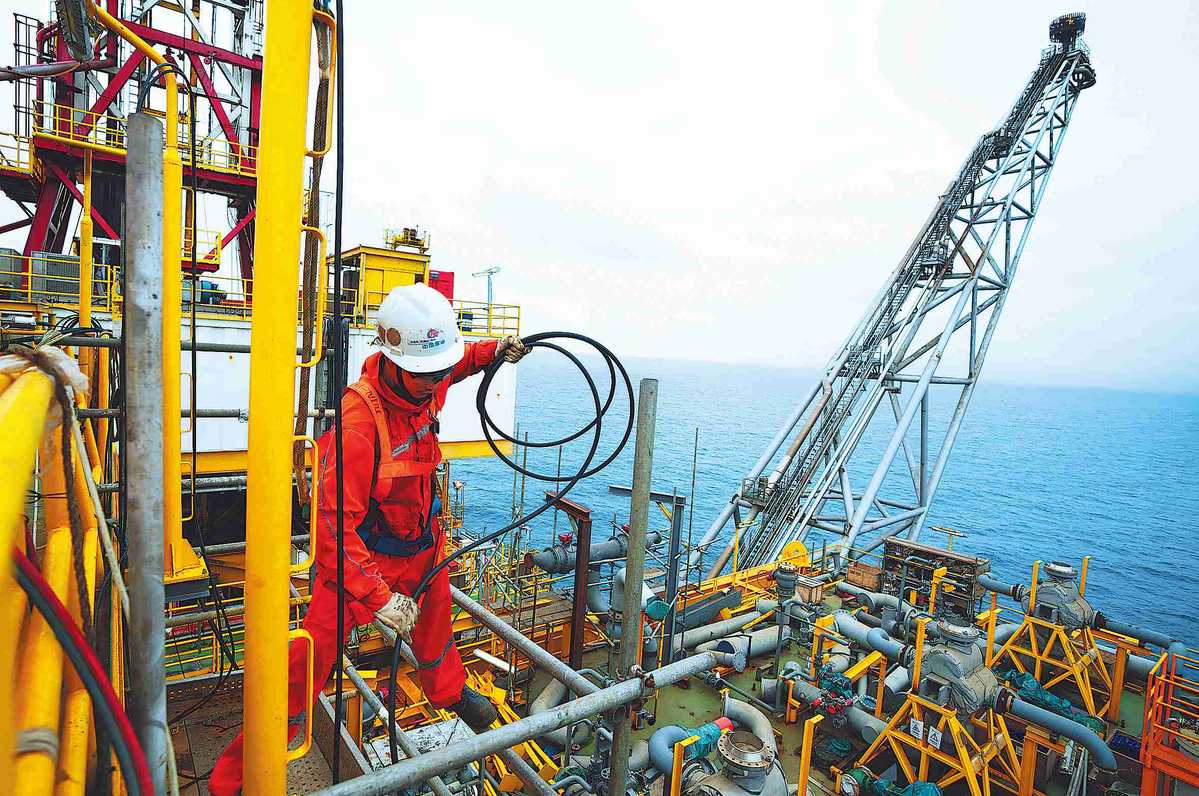Energy self-sufficiency pointer to secure future
Advancements in exploration, production technology have also boosted output of oil and natural gas, ensuring stronger resource resilience in world's second-largest economy


Even as it navigates global uncertainties and supply chain disruptions, China has made significant strides in enhancing its domestic energy security, with the energy self-sufficiency rate rising to above 80 percent.
This improvement in recent years is part of a larger trend of steady growth in domestic energy supply, driven by the increased production of oil and natural gas, according to a report released by China National Petroleum Corp Economics and Technology Research Institute in Beijing in January.
The country's total oil and gas output surpassed 400 million metric tons of oil equivalent last year, while total power generation exceeded 10 trillion kilowatt-hours, marking a 5.7 percent increase over the previous year, it said.
Industry experts believe domestic oil and gas output has been playing a central role in the country's energy self-sufficiency, while advancements in exploration and production technology have also boosted output, ensuring stronger energy resilience in the world's second-largest economy.
This growth reflects continued investments in exploration and development across both traditional and unconventional energy sources, as Chinese oil and gas companies are intensifying exploration and development efforts to boost reserves and enhance efficiency, said Lu Ruquan, head of the China National Petroleum Corp Economics and Technology Research Institute.
Exploration and development investments by the three major oil and gas companies — China National Petroleum Corp, China National Offshore Oil Corp and China Petroleum and Chemical Corp — are expected to reach 390 billion yuan ($53.7 billion), which is leading to significant discoveries across a range of oil and gas fields, he said.
This, in turn, helped reduce China's dependence on crude oil imports to 71.9 percent in 2024, as the nation's oil and gas industry demonstrated remarkable resilience last year, leveraging advanced technologies to increase domestic production while reducing reliance on imports.
China's reliance on oil imports is projected to remain at around 70 percent between 2026 and 2030, while the world's second-largest refining industry is estimated to import 559 million tons of crude oil this year, a level equivalent to about 11.18 million barrels per day.
These numbers not only demonstrate China's strengthened energy security, but also underscore its growing role in global energy markets, where its demand is continuing to shape trends worldwide, said Lu.
According to the CNPC report, the country's energy consumption in 2024 grew by 4 percent compared to 2023, driving global demand for primary energy up by 1.9 percent.
New proven reserves included approximately 1.5 billion tons of oil and 1.6 trillion cubic meters of natural gas. Oil production reached 213 million tons, growing by 1.9 percent from 2023, marking the sixth consecutive year of increased production.


















